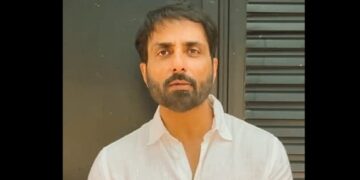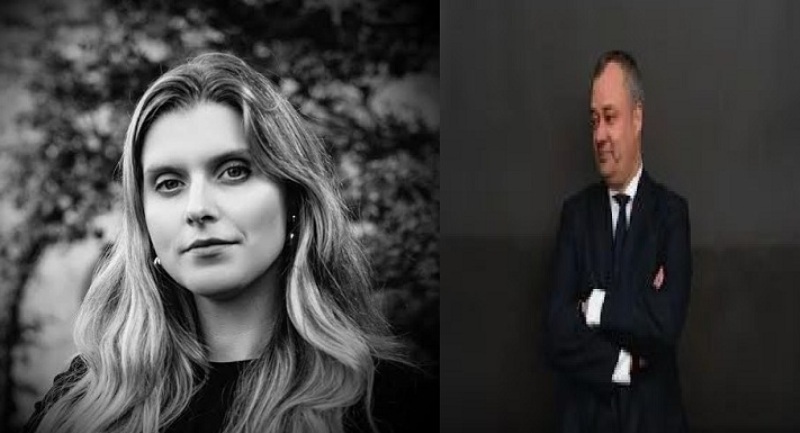Two British lawyers arrived in Dhaka on November 19 to bolster the International Crimes Tribunal (ICT), whose death sentence verdict on former Prime Minister Sheikh Hasina and ex-Home Minister Asaduzzaman Khan Kamal has been taken up by the Mohammad Yunus-led interim regime that is seeking to pursue the former’s extradition to Bangladesh.
Toby Cadman and Anastasya Medveskaya flew into Dhaka from the UK, via Dubai, on an Emirates Airlines flight (No. EK-586). Cadman is a special adviser to the ICT Chief Prosecutor, Tajul Islam. Medvedskaya also has experience in extradition cases.
A day after Bangladesh National Security Adviser (NSA) Khalilur Rahman returned to Dhaka after a two-day visit to Delhi, where he met his Indian counterpart Ajit Doval, five Pakistan Army officers are said to have attended the Armed Forces Days at Senakunjo on November 21.
That day, another key visitor from Pakistan, Lieutenant General Shakir Ullah Khattak, arrived in Dhaka. He is the Chairman of Pakistan’s Heavy Industries Taxila, a large defence products manufacturer. He was previously Director General (Analysis) at the Pakistan ISI and was General Officer Commanding 7th Infantry Division.
These visits from Pakistan to Bangladesh continue in the backdrop of Bangladesh NSA Adviser Khalilur Rahman’s visit to Delhi on November 18 evening, ostensibly to take part in the Colombo Security Conclave at Hyderabad House the following day.
There is a twist here, though. The conclave, involving the national security advisers of some of India’s neighbouring and “friendly” countries, was officially a one-day affair that actually took place on November 20. Photographs of the event, which kicked off on November 20, showed guests, including Khalilur Rahman, and the host, Ajit Doval, at the venue. Formal handshakes and introductions were followed by opening speeches. Indeed, Khalilur Rahman also spoke and he focused on Bangladesh’s sovereignty.
Bangladeshi official documents accessed by Northeast News show that Khalilur Rahman’s scheduled two-day engagement at the security conclave. And yet there is evidence to indicate that the conference kicked off and concluded on November 20.
So, what did Khalilur Rahman do on November 19? He met Doval for an unspecified period of time. This meeting likely extended to include other Indian security officials whose thrust was on a host of sensitive issues that have been of concern to them for some months now: the premature discharge of convicted terrorists from prison, the hideouts of suspected extremists along the India-Bangladesh border, especially in some northern Bangladesh districts, the growing Islamist influence in politics and an upsurge in fundamentalist activities in the country.
It may be recalled that an Indian Military Intelligence officers’ team was in Bangladesh between October 14 and 17. This team is said to have met top Bangladesh Army officers, including General Waker-uz-Zaman, and heads of other key units such as the Directorate General of Forces Intelligence (DGFI), Army Aviation Group and the Armed Forces Division.
On November 16, the Indian MI team accompanied Gen Zaman and other Bangladesh Army officers on an aerial tour of some key points – Lalmonirhat, Thakurgaon and Saidpur as also Nilphamari – along the border on the Bangladesh side.
While the Indian MI team visited the headquarters of the Bangladesh Army’s key 10th Infantry Division, the General Officer Commanding the unit, Major General Mohammad Asadullah Minhazul Alam, did not meet the guests. In fact, sources have confirmed that none of the heads of the host units met the Indian MI team.
The visiting team, led by a major general, is also said to have handed over a dossier to the Bangladesh Army officers. This dossier is said to contain details of the Indian security establishment’s main concerns, including names of Bangladeshi nationals suspected to be involved in extremist activities and figures in India’s list of persons of concern.
Cadman is the co-founder of The Guernica Group and Head of Guernica 37 International Justice Chambers in London. He is an international law specialist in international criminal and humanitarian law, international terrorism, anti-corruption, maritime security, extradition and mutual legal assistance, and human rights law.
As an extradition specialist, he acts for the prosecution and defence, advising and representing individuals, requesting judicial authorities and governments in extradition proceedings both at first instance hearings and extradition appeals in the High Court, Supreme Court and European Court of Human Rights. He is currently instructed in a number of matters before the Administrative Court of England and Wales, the European Court of Human Rights and the UN Human Rights Committee.
Toby advises on judicial reform, legislative drafting and institution building in Albania, Bahrain, Bangladesh, Bosnia and Herzegovina, Burma (Myanmar), Croatia, Lebanon, Macedonia, Montenegro, Syria and Tunisia.
Medveskaya has experience in public international law matters, where she advised the Russian Federation in the case before the International Court of Justice and the European Court of Human Rights.
ALSO READ: Ahead of polls, two Bangladeshi companies picked for supplying 25,000 bodycams for policemen
She has expertise in international arbitration and extradition cases and has advised on several applications before the Commission for the Control of Interpol’s Files, where red notices were issued by the Russian Federation and Ukraine.















